Sixth Form Evening Lectures
How Physical Sciences and Mathematics Make a Difference in the World
How Physical Sciences and Mathematics Make a Difference in the World
The NUSTEM Evening Lectures are aimed at Y11 to Y13 students and their teachers. Each lecture is focused on a different topic, and aims to show how Physical Sciences and Mathematics matter and where they can lead. The lectures are mainly presented by Northumbria University researchers, with some guest speakers from industry.
The lectures will run every Thursday from 17:30 to 18:30 starting on the 6th November 2025.
Attendance is free, and preferably in person.
STEP 1 – Explore our programme below. It contains a summary of all lectures available to attend.
STEP 2 – Book a place in your favourite lectures by clicking the “click to show booking form” under the book your place button. This will reveal a easy form to fill in. We are collecting information mainly to make sure we have a big enough room to seat everyone.
STEP 3 – Come along on the day and time of the lecture! More information in how to find us is at the bottom of this page. We will have some refreshments and snacks waiting for you.
STEP 4 – If you cannot join us in person (and we strongly recommend you do!) just press the join lecture here button. This will take you to a Teams town hall meeting for you to join in.
(except 11th December – see notes for details)
The JWST is the most advanced telescope ever constructed, and it was launched into space on Christmas Day 2021. Since then, it has provided a completely new view of our universe, beaming back incredible images of everything from the planets in our own Solar System to the most distant galaxies ever observed.
Come along to learn about some of the greatest discoveries, and how astronomers at Northumbria University are using this extraordinary telescope.
Please register for in-person or online attendance.
Click to show booking form
Data collected here will be used to monitor the attendance to Evening Lectures series. It will not be shared with 3rd parties. Any questions regarding the nature of your answers please contact Joe Shimwell at joe.shimwell@northumbria.ac.uk
Active from 17:15 on 6th November.
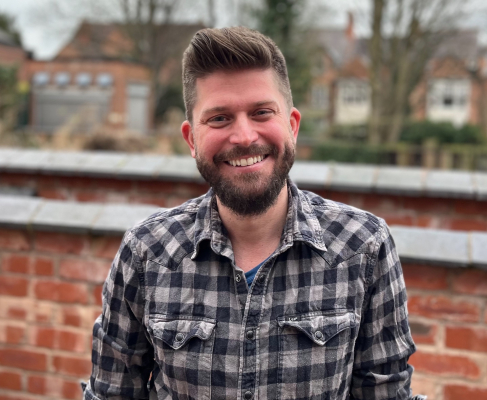
Climate change is one of the greatest challenges we face and the race to achieve net-zero is becoming ever more intense. Fossil fuels remain the main driver of climate change and to tackle this we are increasing the amount of renewable energy we use. Solar panels are expected to be at the core of this renewable energy transition due to them being a clean, low-cost and reliable alternative – but are they really as green as they seem?
In this talk, we will explore solar power from a Life Cycle Assessment perspective – a way of measuring environmental impact from manufacturing to disposal. By looking at the bigger picture of solar technology and its side-effects on the environment, we will find out if solar panels really can outshine climate change.
Please register for in-person or online attendance.
Click to show booking form
Data collected here will be used to monitor the attendance to Evening Lectures series. It will not be shared with 3rd parties. Any questions regarding the nature of your answers please contact Joe Shimwell at joe.shimwell@northumbria.ac.uk
Bethany Willis
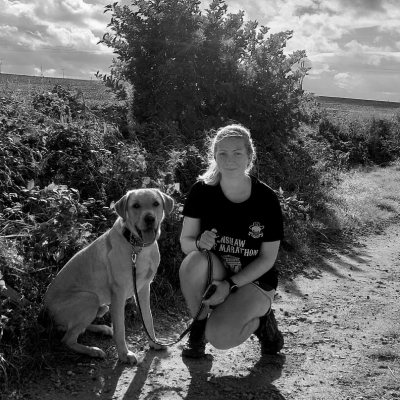
Have you ever wondered why your phone sometimes loses signal, or how astronauts are protected from space radiation? What if I told you we live in a world filled with invisible waves—buzzing all around us from phones, Wi-Fi, microwaves, and even lightning!
In this fun and interactive talk, we’ll explore the mysterious world of electromagnetic waves—what they are, where they come from, and how they affect our lives. But don’t worry—we’re not here to scare you. We’re here to show you the cool science behind how engineers build invisible shields to block or control these waves.
We’ll play with real-life examples like phone cases, airplane windows, and even superhero suits (yes, really!). You’ll also find out how this research helps protect hospitals, airplanes, space missions—and maybe even your brain from too much screen time!
Get ready to uncover the secrets of electromagnetic shielding and see how science is quietly guarding your world—every second of every day.
Please register for in-person or online attendance.
Click to show booking form
Data collected here will be used to monitor the attendance to Evening Lectures series. It will not be shared with 3rd parties. Any questions regarding the nature of your answers please contact Joe Shimwell at joe.shimwell@northumbria.ac.uk
Aqsa Arshad
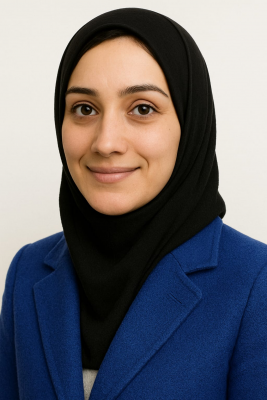
In this lecture, Matteo will explain – with the aid of some computer graphics – how fractals can be defined as geometrical objects characterised by two properties: self-similarity, and non-integer dimension. Differently from the ‘smooth’ figures of classical Geometry, such as circles or triangles, fractals turn out to be ‘rough’ and infinitely complex.
Please register for in-person or online attendance.
Click to show booking form
Data collected here will be used to monitor the attendance to Evening Lectures series. It will not be shared with 3rd parties. Any questions regarding the nature of your answers please contact Joe Shimwell at joe.shimwell@northumbria.ac.uk
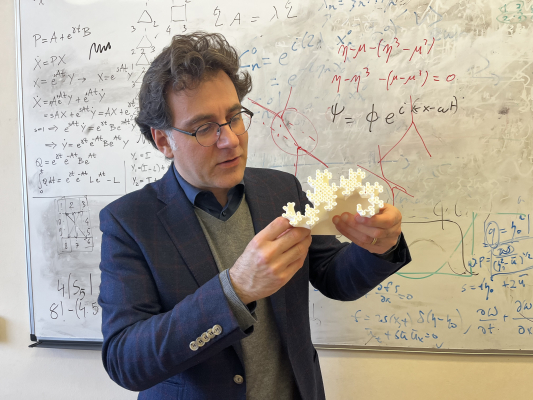
How fast are sea levels rising? What causes an ice age to start or end? How do glaciers affect the weather? In this lecture, we will dive into the fascinating world of snow and ice. We will look at how scientists research climate change and try to find an answer to questions such as these.
Please register for in-person or online attendance.
Click to show booking form
Data collected here will be used to monitor the attendance to Evening Lectures series. It will not be shared with 3rd parties. Any questions regarding the nature of your answers please contact Joe Shimwell at joe.shimwell@northumbria.ac.uk
Max Brils
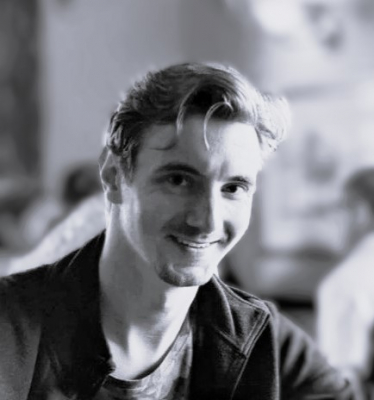
Our solar system is a treasure trove of objects, but the most interesting may be the comet. While it is smaller than the average city, it can leave trails and tails that span from one planet to the next, all because it is made of dust and ice. Within this lecture we will explore comets using cutting edge measurements made by spacecraft and link their findings to the origin of life itself. We will look into the future of space exploration and even outside of our own solar system.
This lecture will take place in-person at the Blyth Energy Central Campus Learning Hub, and will also be streamed online.
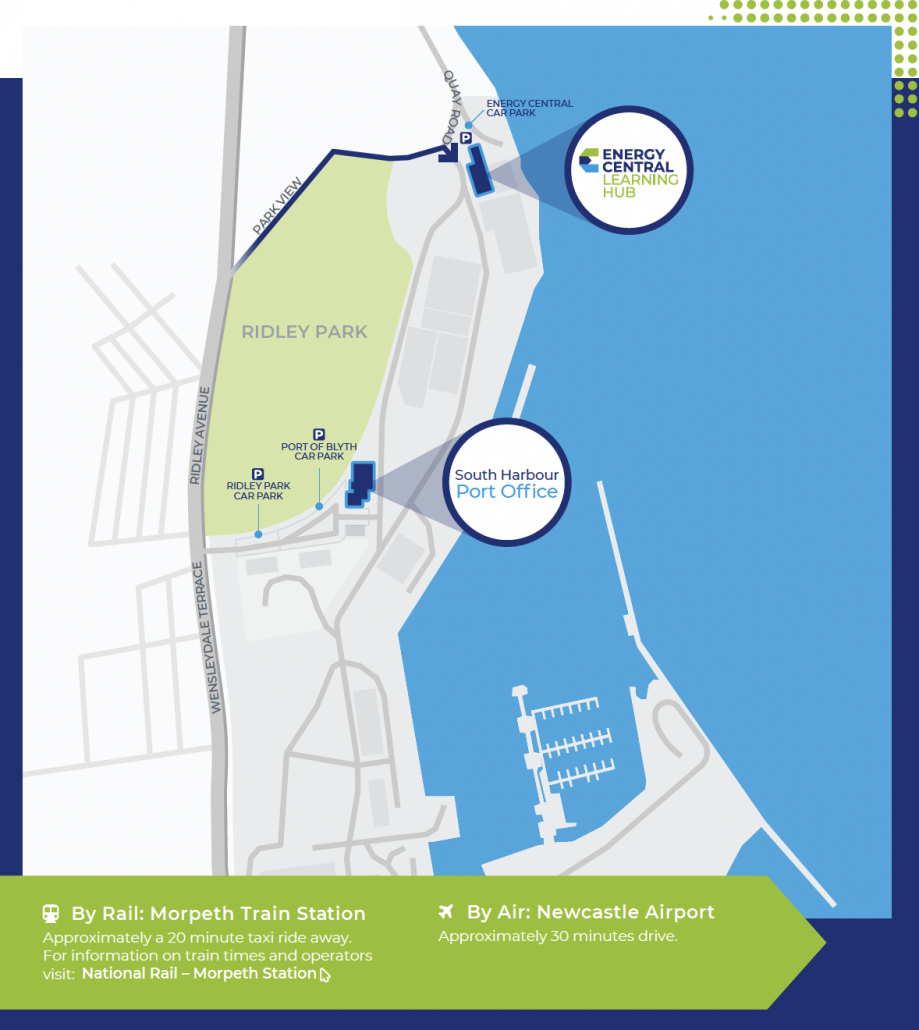
Please register for in-person or online attendance.
Click to show booking form
Data collected here will be used to monitor the attendance to Evening Lectures series. It will not be shared with 3rd parties. Any questions regarding the nature of your answers please contact Joe Shimwell at joe.shimwell@northumbria.ac.uk
Charlotte Goetz
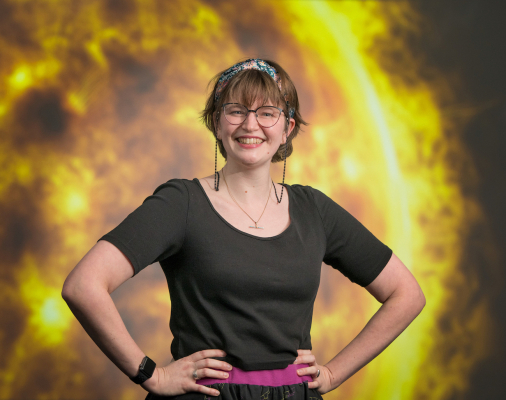
The evening lectures will take place in Ellison Building A-block, room ELA 009.
The Ellison Building A-block is the building number 10a on the map below:
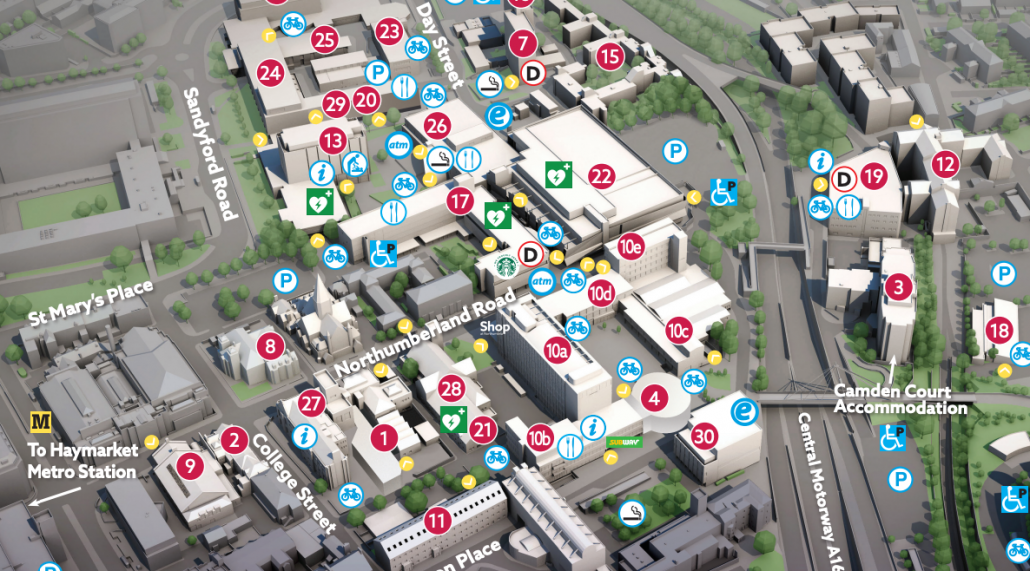
You want to enter the building using the automatic revolving doors located in Northumberland Road as seen in the photo below:
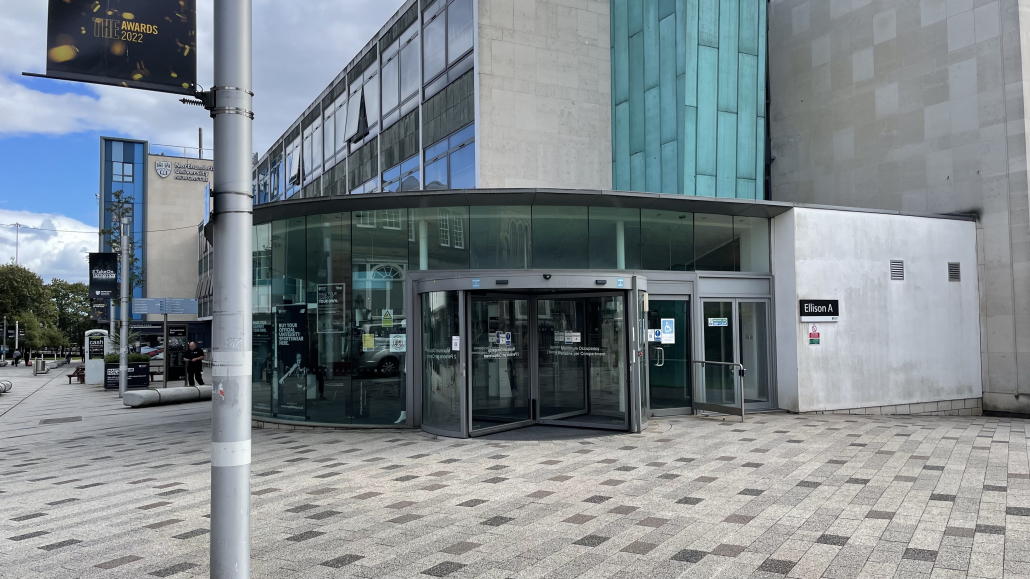
The entrance can be found with:
Alternatively you can use the entrance (set of automatic double doors) located on Ellison Place:
Here is a short video showing the location of the room ELA 009:
We encourage you to attend the evening lectures in person.
We understand, however, that this is not always possible, so we will be live-streaming the lectures using the Town Hall feature in Microsoft Teams. You don’t need to have Microsoft Teams installed on your device.
After booking a place for the evening lecture just press the Join online button next to each evening lecture description.
The button will open a webpage which you lets you choose to watch the either in your web browser, or join via the Teams app.
We recommend you join the lecture using a laptop/desktop computer rather than a mobile device.
Throughout the lecture you will be able to ask anonymous questions to our presenters using a moderated Q&A.
Click here to find out more about how to join and participate in a Town Hall meeting.
07 Nov – Why does space sing? (And why should I care?) by Daniel Ratliff
14 Nov – Should I worry about space weather? by Clare Watt
21 Nov – How can we store energy, and why is it important? by Yolanda Sanchez
28 Nov – How much, how fast? Predicting ice sheet melt by Jo Zanker
05 Dec – The James Webb Space Telescope: New Eyes on the Universe by Henrik Melin
12 Dec – The complex beauty of fractal geometry by Matteo Sommacal
We may request cookies to be set on your device. We use cookies to let us know when you visit our websites, how you interact with us, to enrich your user experience, and to customize your relationship with our website.
Click on the different category headings to find out more. You can also change some of your preferences. Note that blocking some types of cookies may impact your experience on our websites and the services we are able to offer.
These cookies are strictly necessary to provide you with services available through our website and to use some of its features.
Because these cookies are strictly necessary to deliver the website, refusing them will have impact how our site functions. You always can block or delete cookies by changing your browser settings and force blocking all cookies on this website. But this will always prompt you to accept/refuse cookies when revisiting our site.
We fully respect if you want to refuse cookies but to avoid asking you again and again kindly allow us to store a cookie for that. You are free to opt out any time or opt in for other cookies to get a better experience. If you refuse cookies we will remove all set cookies in our domain.
We provide you with a list of stored cookies on your computer in our domain so you can check what we stored. Due to security reasons we are not able to show or modify cookies from other domains. You can check these in your browser security settings.
These cookies collect information that is used either in aggregate form to help us understand how our website is being used or how effective our marketing campaigns are, or to help us customize our website and application for you in order to enhance your experience.
If you do not want that we track your visit to our site you can disable tracking in your browser here:
We also use different external services like Google Webfonts, Google Maps, and external Video providers. Since these providers may collect personal data like your IP address we allow you to block them here. Please be aware that this might heavily reduce the functionality and appearance of our site. Changes will take effect once you reload the page.
Google Webfont Settings:
Google Map Settings:
Google reCaptcha Settings:
Vimeo and Youtube video embeds:
The following cookies are also needed - You can choose if you want to allow them:
You can read about our cookies and privacy settings in detail on our Privacy Policy Page.
Privacy Notice and Cookies 2025